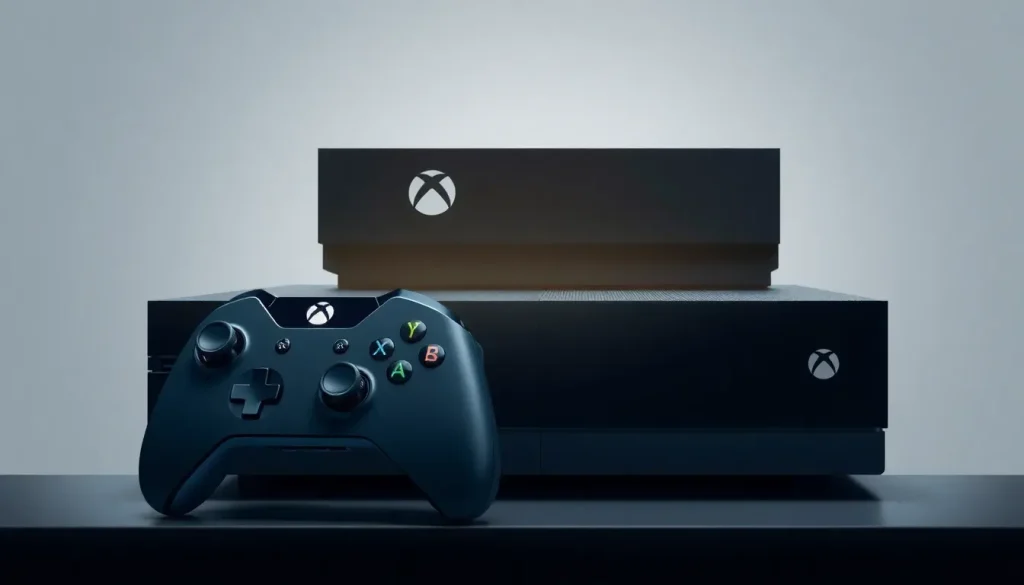Major retailer stops selling Xbox consoles

The gaming industry is undergoing significant changes, and decisions made by major retailers can have far-reaching implications. One such shift has been initiated by Costco, a leading retailer in both the United States and the United Kingdom, which has announced that it will no longer carry Xbox consoles. This move, confirmed by the company, has raised eyebrows among consumers and industry analysts alike.
Understanding the impact of this decision is crucial, as it reflects broader trends in the gaming market and Microsoft’s strategic positioning in the console wars. Let's delve deeper into what this means for gamers, retailers, and the future of Xbox.
Costco's unexpected decision to stop selling Xbox consoles
Costco's announcement to cease selling Microsoft’s Xbox consoles is surprising but not entirely unforeseen. The retailer has clarified that this is a "business decision", signaling that it has assessed the profitability and demand for these products. In contrast, Costco will continue to stock and sell popular consoles from competitors like PlayStation 5 and Nintendo Switch.
This strategic choice indicates a clear preference among consumers for competing products, and raises questions about Microsoft’s current marketing strategy. With Costco's vast reach and influence in retail, this could signify a troubling trend for Xbox.
Implications for Microsoft and future console sales
Costco has made it clear that there are no plans to resume the sale of Xbox consoles in the future. This decision could have broader consequences not just for existing Xbox models, such as the Series S and Series X, but also for upcoming consoles that Microsoft may launch.
- Potential impact on upcoming Xbox models.
- Increased scrutiny on Microsoft's pricing strategies.
- Possible shifts in consumer loyalty towards other brands.
The retailer's choice to focus on PlayStation and Nintendo suggests that they perceive more favorable market conditions for these brands. In a competitive landscape, such decisions can significantly influence consumer preferences and sales trajectories.
Sales figures and market trends
Current sales data paints a stark picture for Xbox. As of now, combined sales of the Xbox Series S and Series X stand at approximately 33.4 million units, while the PlayStation 5 has soared to 78.58 million units sold. This discrepancy not only highlights Xbox's struggles but also indicates a long-term trend that could worsen if Microsoft continues to increase its prices.
The ongoing decline in Xbox sales can be attributed to several factors, including:
- Pricing strategies that have not resonated with consumers.
- Competition from other gaming systems that offer more attractive features.
- Consumer perception of Xbox as a less favorable choice compared to PlayStation.
Microsoft's pricing strategy under scrutiny
Microsoft has recently raised the prices of both their Xbox Series S and Series X consoles. While the company may aim to enhance profit margins per unit sold, this approach risks alienating potential buyers. As prices rise, the likelihood of decreasing sales becomes more pronounced.
Reports suggest that the price increases have made certain Xbox models, such as the Xbox Series X Galaxy Edition, more expensive than a PlayStation 5 Pro in the United States. This pricing disparity could lead to further erosion of Xbox's market share:
- Price increases have historically led to lower demand.
- Competing brands may capitalize on Xbox's pricing missteps.
- Consumer loyalty could shift away from Xbox if perceived as overpriced.
Responses from the gaming community
In light of Costco’s decision, reactions from the gaming community have been mixed. Many gamers have expressed frustration over Microsoft’s pricing and product strategy. A notable tweet from gaming commentator Destin Legarie encapsulated the sentiment:
Just called Costco about Xbox stock. I was told that they will no longer be carrying Xbox consoles. “We don’t have any plans going forward to carry an Xbox console.” Saying. It was a business decision.
They did say they have some great deals on Switch & PlayStation, though.
— Destin (@DestinLegarie) September 25, 2025
Such insights reflect a growing concern among consumers regarding the future viability of Xbox as a competitive brand. The overall sentiment suggests that Microsoft's current strategies may not be sustainable in the long run.
The future of Xbox in a competitive market
The landscape of the gaming industry is constantly evolving, which raises the question: what does the future hold for Xbox? As competitors continue to thrive, Microsoft must reassess its strategies to regain consumer trust and market share.
- Exploring new pricing models that attract consumers.
- Enhancing game libraries and exclusive offerings.
- Improving marketing efforts to highlight unique features of Xbox consoles.
As the console wars continue, the ability of Microsoft to adapt to market demands will be critical in determining its position within the industry. The stakes are high, and the pressure to innovate and respond to consumer needs has never been greater.
To gain a deeper understanding of the ongoing situation and its implications, you can check out this insightful video on YouTube:
As we watch these developments unfold, it will be essential for both consumers and industry analysts to keep a close eye on how Microsoft navigates this challenging terrain and whether it can reclaim its footing in a fiercely competitive gaming environment.




Leave a Reply